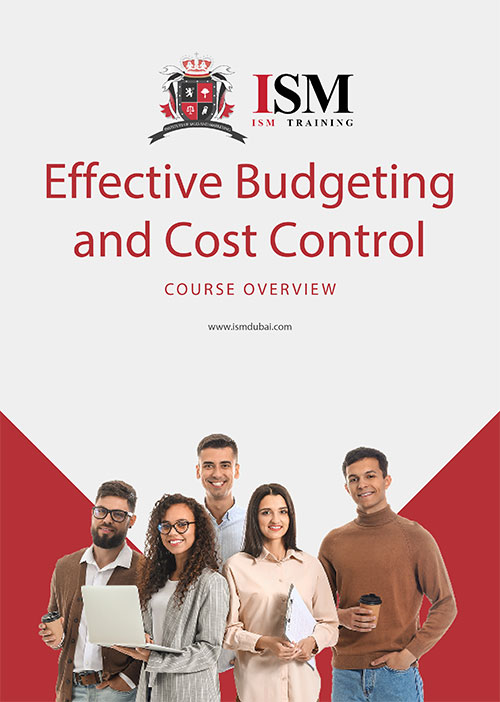Introduction to Budgeting
- Understanding the purpose and importance of budgeting
- Key concepts and terminology in budgeting
- The budgeting process and its role in strategic planning
Production & Finance
28 April 2025
Dusit D2 Kenz Hotel
3 days
This 3-day course is designed to provide individuals with the skills and knowledge needed to effectively manage budgets and control costs. The course covers topics such as budget preparation, cost analysis and control, and performance measurement and reporting. Participants will learn how to develop, implement, and monitor budgets, as well as how to use cost control techniques to ensure that resources are used effectively and efficiently.
The Effective Budgeting & Cost Control course is a 3-day intensive program designed to provide participants with a thorough understanding of budgeting and cost control principles in a business context. This course emphasizes the significance of cost-effectiveness and resource allocation in maintaining organizational sustainability, even in favorable market conditions. Participants will explore a variety of techniques and strategies to review, control, and monitor income and expenditure effectively. The program offers practical insights into implementing budgeting principles and objectives to ensure accountable and measurable departmental costs. Ideal for finance professionals, managers, and business owners, this course is crucial for anyone looking to optimize their organization’s financial performance and resource management.
We offer a comprehensive curriculum that covers all of the essential topics. Our experienced instructors will provide you with the support and guidance that you need to succeed.

Omaima Khanfar

Omaima Khanfar is a certified trainer and vocational educator with a passion for growth and empowerment. She creates pragmatic and relatable learning experiences that resonate with diverse audiences. Her dedication to nurturing self-development has made her a trusted and sought-after professional.
28 April 2025
Dusit D2 Kenz Hotel